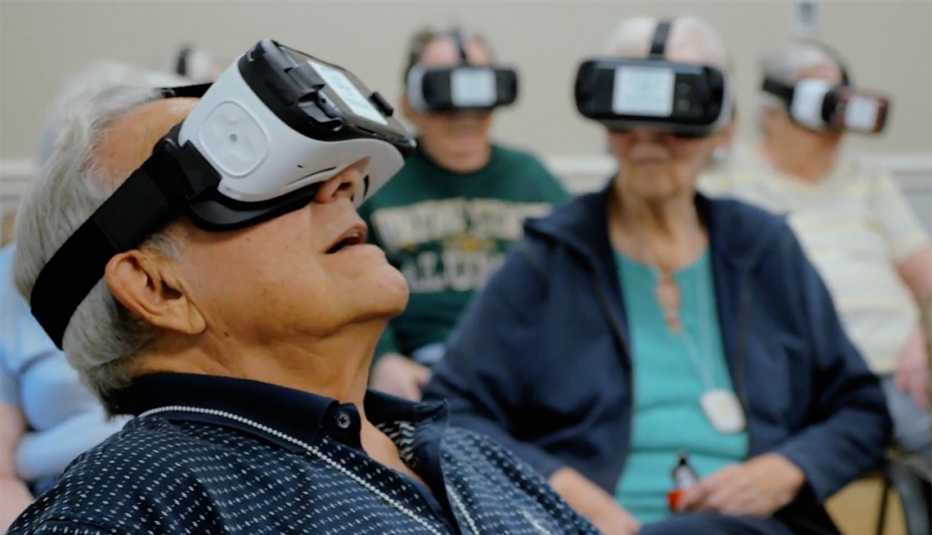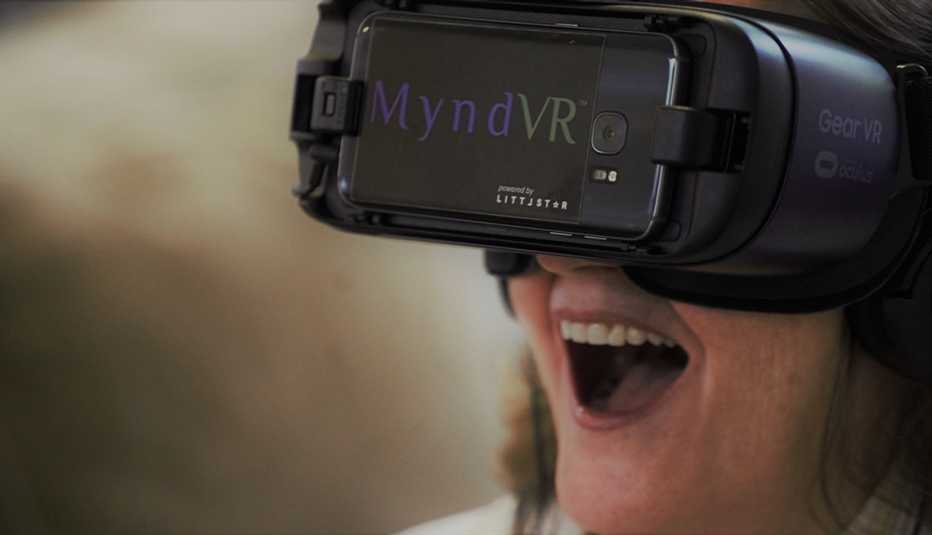Staying Fit


When Ann Ellen Rutherford put on the headset, she suddenly found herself in Paris. The 75-year-old, a resident at Maplewood Senior Living in Weston, Mass., stepped into the Louvre museum, which she had visited years ago. As she turned her head, she took in the scenery and the priceless art surrounding her.
“It hadn’t changed,” Rutherford said. After a few minutes of exploration, she asked the activity director at her adult community if she could travel to Italy to revisit Venice, one of her favorite cities. With a few clicks on a computer pad, she had arrived.


AARP Membership— $12 for your first year when you sign up for Automatic Renewal
Get instant access to members-only products and hundreds of discounts, a free second membership, and a subscription to AARP the Magazine.
And while this trip didn’t involve a passport, it still felt like a journey, she said. “Sometimes I get frustrated that I can’t travel. But I’m happy I can go back and see beautiful things.”
Rutherford was experiencing virtual reality (VR), an interactive, three-dimensional immersive computer experience that's typically viewed through goggles. The technology, which first found popularity with video-gaming millennials, is now wowing older Americans, health care professionals and caregivers.
Increasingly, adult communities are using VR for enrichment and to help trigger positive memories for patients with dementia, who can use programs like Google Street View to revisit their childhood neighborhoods. It’s also aiding patients with macular degeneration and helping train medical professionals, letting them step into their patient’s shoes to experience how diseases alter how they perceive the world.
Perhaps most importantly, it can help reduce social isolation and depression, said Kyle Rand, CEO of Rendever, the company that provided the VR experience used at Rutherford’s senior living community.
He said that VR can be transformational. “You can put it on the person you’re caring for, and you can let them do anything and go anywhere. All of a sudden, life is much more than the four walls around you.”
You forget you have a headset on. You feel like you’re really there.
So far, the technology has been marketed to adult communities and agencies. In Ontario, Canada, the Milton Public Library has even partnered with local senior homes to offer the service. Rendever and other VR companies said they are working to find ways to make VR affordable for consumers by next year.
Meanwhile, it’s possible to try the technology on your own, simply by searching YouTube for “360 VR” and viewing videos through a low-cost headset that works with a cellphone. Of course, the content quality can vary greatly. And like many technologies, it can be glitchy and frustrating to patients and caregivers who are trying it out for the first time.
But the upside is tremendous, said Molly Fogel, director of educational and social services for the Alzheimer’s Foundation of America. It’s particularly valuable for reminiscence therapy, which uses recollections to increase psychological well-being. “It can bring joy, helping a person engage in the memories they can still access.”


































































More From AARP
The Challenges and Joys of Caregiving for a Grown Child With a Disability
How caregivers can manage expectations, prioritize self-care and find the right support network
How to Write ‘The Letter’ to Uncooperative Sibling Caregivers
Make a straightforward appeal for assistance with a loved one
Real Problems, Real Solutions to the Long-Term Care Crisis
Making at-home care work for America starts with tackling these 6 challenges